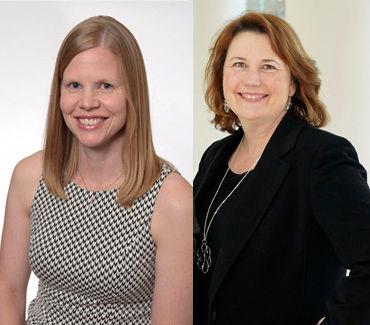
-
Understanding primary immunodeficiency (PI)

Understanding PI
The more you understand about primary immunodeficiency (PI), the better you can live with the disease or support others in your life with PI. Learn more about PI, including the various diagnoses and treatment options.
-
Living with PI
-
Addressing mental health
-
Explaining your diagnosis
- General care
- Get support
- For parents and guardians
-
Managing workplace issues
- Navigating insurance
-
Traveling safely

Living with PI
Living with primary immunodeficiency (PI) can be challenging, but you’re not alone—many people with PI lead full and active lives. With the right support and resources, you can, too.
-
Addressing mental health
-
Get involved

Get involved
Be a hero for those with PI. Change lives by promoting primary immunodeficiency (PI) awareness and taking action in your community through advocacy, donating, volunteering, or fundraising.
-
Advancing research and clinical care
-
Research Grant Program
-
Consulting immunologist
-
Diagnosing PI
-
Getting prior authorization
-
Clinician education
-
Survey research
-
Participating in clinical trials

Advancing research and clinical care
Whether you’re a clinician, researcher, or an individual with primary immunodeficiency (PI), IDF has resources to help you advance the field. Get details on surveys, grants, and clinical trials.
-
Research Grant Program

IDF’s Nurse Advisory Committee (NAC) is excited to welcome two new members, NIH award winner Dr. Victoria Anderson of the National Institute of Allergy and Infectious Diseases (NIAID), and patient-turned-provider Laura Rohe of Allergy, Asthma and Immunology Associates (AAIA) in Omaha, Nebraska. The NAC is an integral part of IDF’s volunteer leadership structure and works to increase awareness of primary immunodeficiency (PI), increase educational and peer support opportunities for individuals and families, and develop patient education programs.
Victoria Anderson, DNP, CRNP, is currently a senior nurse practitioner at NIAID, which is part of the National Institutes of Health (NIH). Prior to that, she worked for the U.S. Public Health Service (USPHS) for 21 years and retired as a Captain of the USPHS Commissioned Corps in 2011.
At NIH, Anderson works alongside Dr. Steve Holland caring for individuals with a range of diagnoses including common variable immune deficiency (CVID), chronic granulomatous disease (CGD), STAT1 gain-of-function, GATA2 deficiency, and immune dysregulation disorders. In 2018, she won the NIH Clinical Center’s Nurse Practitioner of the Year award.
Said Anderson, “I have come to appreciate the deep connection of immune regulation, and dysregulation, in the context of recurrent infections, autoimmunity, and every organ system. Caring for patients with known inborn immune dysregulation diseases, you take a lifelong journey with them and their families, which is a privilege.”
Anderson is a newcomer to the IDF community, where she hopes to expand her service to patients beyond NIH. As part of the NAC, she wants to “help with education, advocacy, and awareness of primary immunodeficiencies, and in the greater understanding of lesser-known and perhaps still unidentified immune dysregulation diseases.”
Laura Rohe, RN, BSN, IgCN, AE-C, on the other hand, was introduced to IDF long before she earned her nursing credentials. In 1989, she was diagnosed with CVID and referred to Dr. Roger Kobayashi at AAIA. He in turn introduced her to IDF. She began intravenous immunoglobulin (IVIG) replacement therapy and her home health nurse inspired her to pursue nursing as a career.
“I decided I wanted to be a nurse and was fortunate enough to start working at AAIA right after receiving my BSN from [the University of Nebraska Medical Center],” Rohe said. She has worked alongside Dr. Kobayashi at AAIA for more than 25 years.
Rohe serves as the practice’s immunoglobulin (Ig) coordinator and prior authorization nurse for hundreds of patients, many of whom are on Medicare. “I think I work very hard at getting my patients on treatment and keeping them on treatment with no delays because I understand what it is like. I am them,” she said on how her experience as a patient informs her work.
Rohe is excited to be involved with the NAC, particularly given IDF’s policy focus on access to treatments like Ig.
“I am so honored to be asked to be a member of the NAC,” she said. “I hope as a member of the IDF NAC that I can be a resource to other nurses on managing patients on Ig and to empower patients living with PI through education and advocacy.”
Sign up for updates from IDF
Receive news and helpful resources to your cell phone or inbox. You can change or cancel your subscription at any time.





The Immune Deficiency Foundation improves the diagnosis, treatment, and quality of life for every person affected by primary immunodeficiency.
We foster a community that is connected, engaged, and empowered through advocacy, education, and research.
Combined Charity Campaign | CFC# 66309

